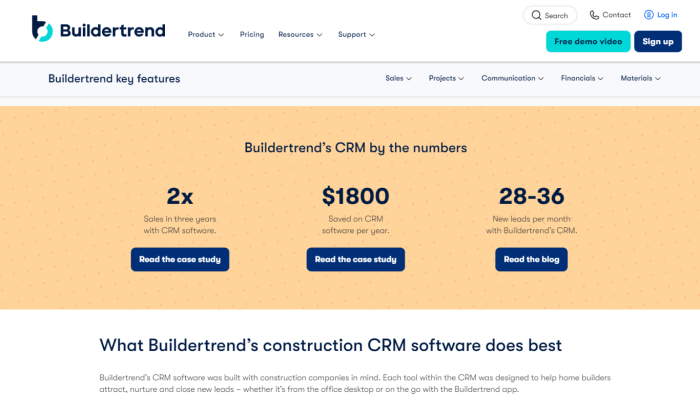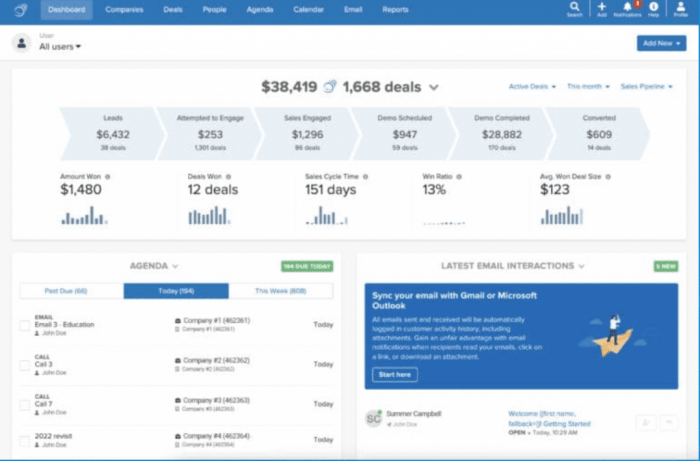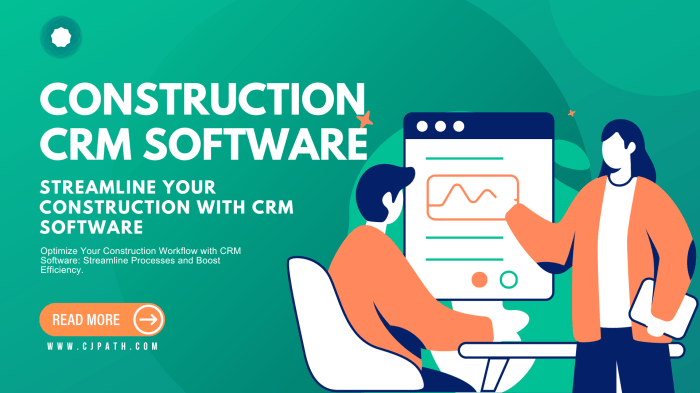Best crm software for construction – The construction industry is notoriously complex, juggling multiple projects, clients, subcontractors, and materials simultaneously. Effective project management and client relationship management are paramount to success. A robust Customer Relationship Management (CRM) system can be the difference between thriving and merely surviving in this competitive landscape. This comprehensive guide explores the best CRM software options specifically designed to meet the unique needs of construction businesses, helping you streamline operations, improve communication, and boost profitability.
Understanding the Need for CRM in Construction
Construction projects are inherently multifaceted, involving intricate scheduling, budgeting, and communication. Traditional methods often rely on spreadsheets, emails, and phone calls, leading to potential inefficiencies, miscommunications, and missed deadlines. A dedicated construction CRM addresses these challenges by centralizing crucial information, automating tasks, and fostering better collaboration among all stakeholders. Key benefits include:

Source: pttrns.com
- Improved Project Management: Track project timelines, milestones, and budgets effectively.
- Enhanced Client Communication: Maintain consistent and transparent communication with clients.
- Streamlined Subcontractor Management: Manage and coordinate subcontractors efficiently.
- Better Lead Management: Capture, nurture, and convert leads more effectively.
- Increased Profitability: Optimize resource allocation and reduce operational costs.
- Improved Reporting and Analytics: Gain valuable insights into project performance and business trends.
Key Features to Look for in a Construction CRM
Not all CRMs are created equal. When choosing a solution for your construction business, consider these essential features:
Project Management Capabilities
- Task Management: Assign, track, and manage tasks related to each project.
- Timeline Management: Visualize project timelines and milestones.
- Budget Tracking: Monitor project costs against budgets.
- Document Management: Store and access project documents centrally.
- Progress Reporting: Generate automated progress reports for clients and stakeholders.
Client Relationship Management (CRM) Features
- Contact Management: Store and manage client information, including contact details and communication history.
- Lead Management: Track leads from initial contact to project completion.
- Communication Tools: Integrate email, phone, and other communication channels.
- Customer Support: Provide efficient and effective customer support.
Subcontractor Management
- Subcontractor Database: Maintain a database of trusted subcontractors with their contact information, qualifications, and performance history.
- Subcontractor Communication: Facilitate communication with subcontractors regarding project updates, payments, and other relevant information.
- Payment Management: Track payments to subcontractors and ensure timely payments.
Reporting and Analytics
- Project Performance Reporting: Generate reports on project progress, costs, and timelines.
- Sales Reporting: Track sales leads, conversion rates, and revenue.
- Customizable Dashboards: Create customized dashboards to visualize key performance indicators (KPIs).
Integration Capabilities, Best crm software for construction
- Accounting Software Integration: Integrate with accounting software for seamless financial management.
- Project Management Software Integration: Integrate with project management software for a unified workflow.
- Other Software Integrations: Integrate with other relevant software applications to streamline your business processes.
Top CRM Software for Construction Companies
Several excellent CRM options cater specifically to the construction industry. The best choice depends on your specific needs and budget. Here are a few examples:
- CoConstruct: Known for its robust project management features and excellent client communication tools. [Link to CoConstruct Website]
- Buildertrend: A popular choice offering comprehensive project management, client communication, and subcontractor management capabilities. [Link to Buildertrend Website]
- Procore: A powerful platform suitable for larger construction firms, providing extensive project management, collaboration, and reporting tools. [Link to Procore Website]
- JobNimbus: A user-friendly CRM tailored for smaller construction businesses, offering a good balance of features and affordability. [Link to JobNimbus Website]
- ServiceTitan: While not exclusively for construction, ServiceTitan offers powerful features applicable to home service contractors, including scheduling, dispatch, and customer communication. [Link to ServiceTitan Website]
Choosing the Right CRM for Your Construction Business: Best Crm Software For Construction
Selecting the ideal CRM requires careful consideration of your specific requirements. Factors to consider include:
- Business Size and Complexity: Smaller firms may find simpler CRMs sufficient, while larger companies might need more sophisticated solutions.
- Budget: CRM pricing varies widely, so choose a system that fits your budget.
- Features and Functionality: Ensure the CRM includes the essential features discussed above.
- Integration Capabilities: Check for compatibility with your existing software systems.
- User-Friendliness: Opt for a CRM that is intuitive and easy to use for your team.
- Scalability: Choose a system that can grow with your business.
Frequently Asked Questions (FAQ)
- Q: What is the average cost of construction CRM software? A: Pricing varies significantly depending on the features, number of users, and vendor. Expect to pay anywhere from a few hundred dollars per month to several thousand dollars per month for enterprise-level solutions.
- Q: Can I integrate my existing accounting software with a construction CRM? A: Many construction CRMs offer integration with popular accounting software like QuickBooks and Xero. Check the specific CRM’s integration capabilities before purchasing.
- Q: How long does it take to implement a construction CRM? A: Implementation time varies depending on the complexity of the system and the size of your business. It can range from a few weeks to several months.
- Q: What are the key benefits of using a construction CRM? A: Key benefits include improved project management, enhanced client communication, streamlined subcontractor management, better lead management, increased profitability, and improved reporting and analytics.
- Q: Is cloud-based CRM better than on-premise CRM for construction? A: Cloud-based CRMs offer greater flexibility, accessibility, and scalability, making them a popular choice for construction businesses. However, on-premise solutions might be preferred for businesses with stringent data security requirements.
Conclusion
Investing in the right CRM is crucial for construction businesses aiming to optimize operations, improve client relationships, and boost profitability. By carefully considering your specific needs and exploring the available options, you can find a solution that streamlines your workflows, enhances communication, and drives your business towards success. Remember to prioritize features such as project management, client relationship management, subcontractor management, and reporting and analytics when making your decision.
Call to Action
Ready to transform your construction business with a powerful CRM? Contact us today for a free consultation and let us help you find the perfect solution to meet your unique needs. Click here to schedule a demo!
Essential Questionnaire
What are the key features to look for in construction CRM software?
Key features include project management tools, contact management, document storage, reporting and analytics, and integration with other business applications.
How much does construction CRM software typically cost?

Source: niftypm.com
Pricing varies widely depending on the features, number of users, and vendor. Expect a range from affordable monthly subscriptions to more substantial enterprise-level solutions.
Can CRM software help improve client relationships in construction?

Source: cjpath.com
Absolutely. CRMs centralize client communication, project updates, and document sharing, leading to improved transparency and stronger client relationships.
How can I choose the best CRM for my small construction business?
Start by identifying your core needs, then research vendors offering solutions tailored to small businesses. Consider ease of use, scalability, and cost-effectiveness.
